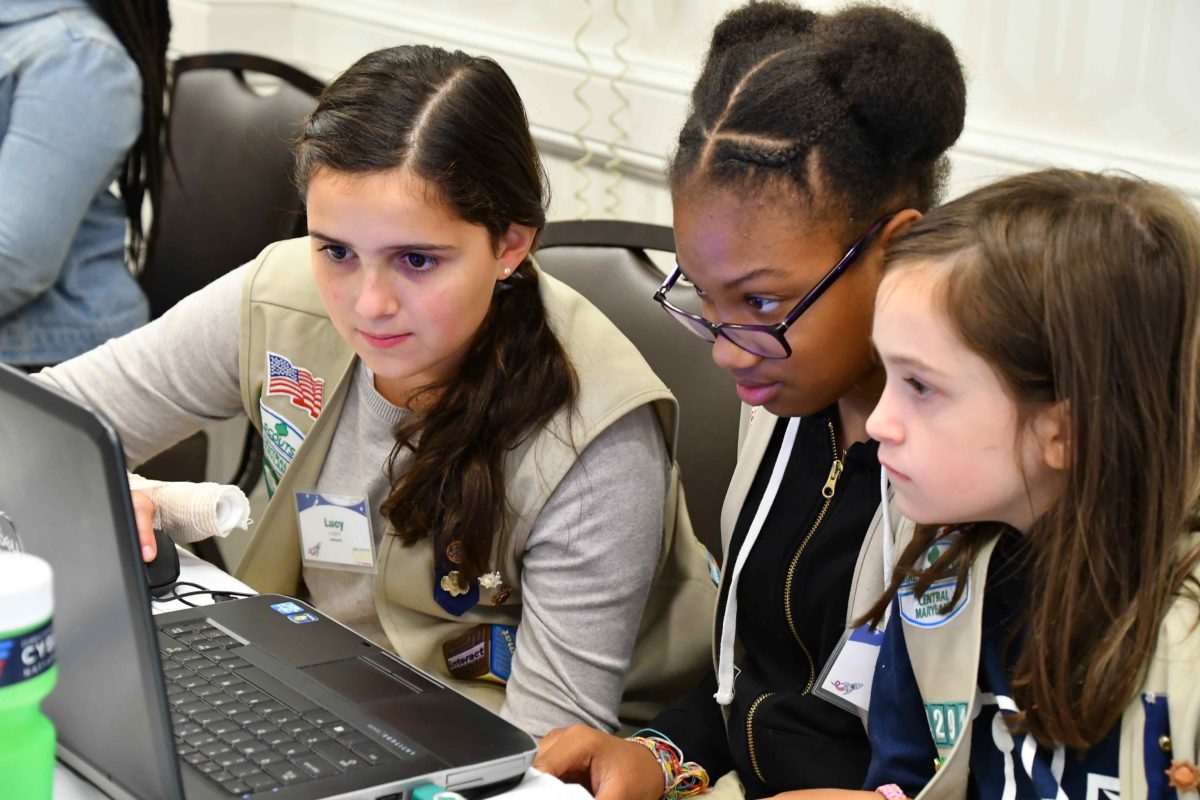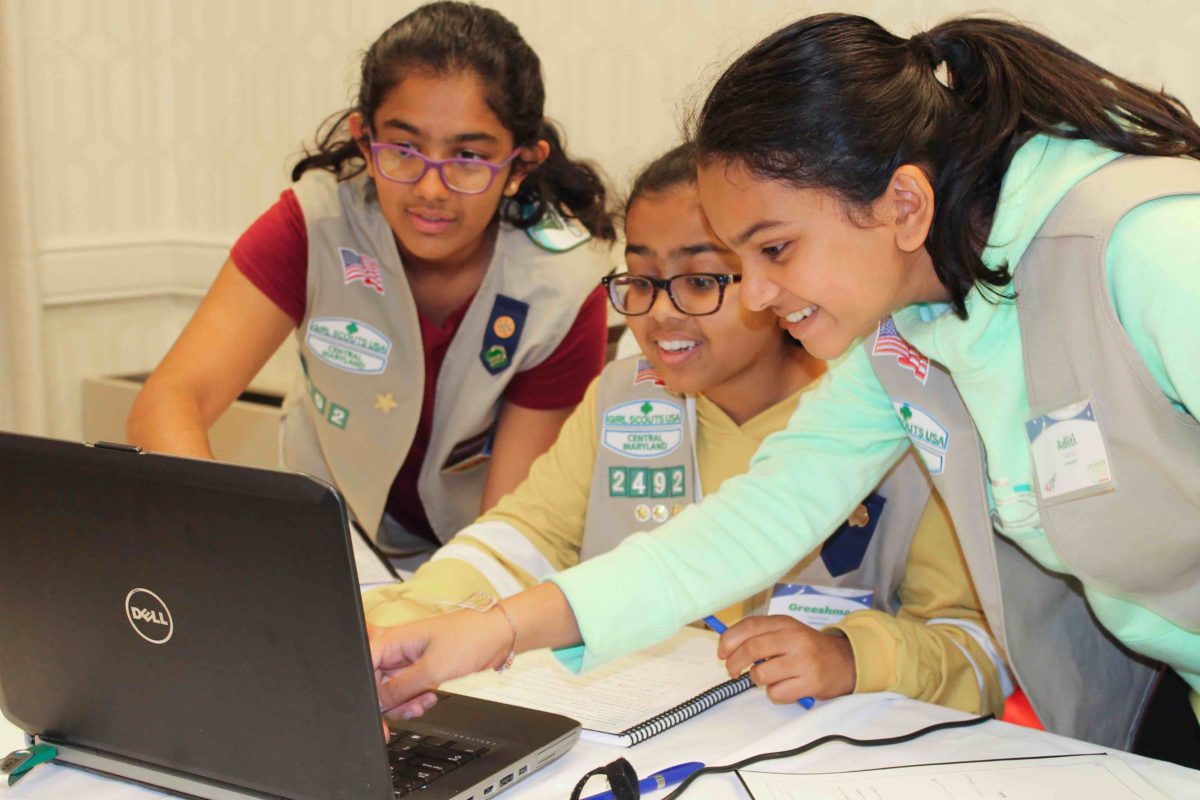On Friday, October 18, the first all-female astronaut team completed a spacewalk on the International Space Station.
The very next day, nearly 200 girls in grades 6-12 entered an “off-world research facility” Moon base in the year 2050 for their own space mission: Save the Moon colony and the lives of the 532 scientists and support staff who work there from a cyberattack.
This was the scenario at The Girl Scouts Cyber Challenge, Girl Scouts of the USA’s (GSUSA) first-ever national STEM challenge event. It was created by Raytheon, a GSUSA national STEM partner. By solving a hypothetical ransomware attack on a Moon base, 2,500 girls across 10 U.S. cities cultivated key cybersecurity skills (including digital asset management, phishing, breach analysis, decryption, and encryption) with support from Raytheon employees and volunteers.
Girls from Anne Arundel, Baltimore, Carroll, Harford, and Howard Counties, and Baltimore city worked through six designated activity stations after learning of the scenario: Attackers targeted the oxygen scrubbing facility and the oxygen supply had been turned off. The attackers were demanding to be paid ransom to turn the oxygen back on, but the Moon base’s policy is to not pay ransom Instead, they investigate and fix the hack.
“I learned what cybersecurity really is,” said Girl Scouts of Central Maryland participant Avery Walker. “I also learned the depth of what it is and how to use it.”
While Walker has plans to be a nurse, she said she loves math. “When I get a math problem right I get chills all over,” she said.

Girl Scouts worked to stop a “cyberattack” against a Moon colony. (Photo Courtesy of Girl Scouts of Central Maryland)
While the Cyber Challenge’s scenario was a simulation, the urgency to develop and cultivate individuals with these technical skills is real. More than 300,000 cybersecurity jobs in the U.S. are unfilled and job postings are up 74% over the past five years, according to the U.S. Department of Commerce and the Bureau of Labor Statistics. Of the current cybersecurity professionals, females represent only 11% of the workforce – globally.
Baltimore was one of only 10 cities selected to be a part of this pilot program and the Girl Scouts of Central Maryland was honored to be a partner. With cybersecurity being one of the fastest growing career areas, this event, along with other Girl Scouts of Central Maryland STEM programs, ensures that girls have the opportunity to develop and expand skills in this critical area.
GSUSA CEO Sylvia Acevedo, a former rocket scientist who discovered her love of stars and outer space as a Brownie Girl Scout, began working with companies like Palo Alto Networks, Code.org, the Cyber Innovation Center, Raytheon, and Design Squad Global to create activities to pique girls’ interest in these fields. The result was the creation of new STEM badges, including cybersecurity badges, that were introduced in 2017. GSUSA estimates that 3 million new STEM badges have been earned by Girl Scouts across the country since they were first introduced.
Before you go...
Please consider supporting Technical.ly to keep our independent journalism strong. Unlike most business-focused media outlets, we don’t have a paywall. Instead, we count on your personal and organizational support.
Join our growing Slack community
Join 5,000 tech professionals and entrepreneurs in our community Slack today!

The person charged in the UnitedHealthcare CEO shooting had a ton of tech connections

From rejection to innovation: How I built a tool to beat AI hiring algorithms at their own game

Where are the country’s most vibrant tech and startup communities?


